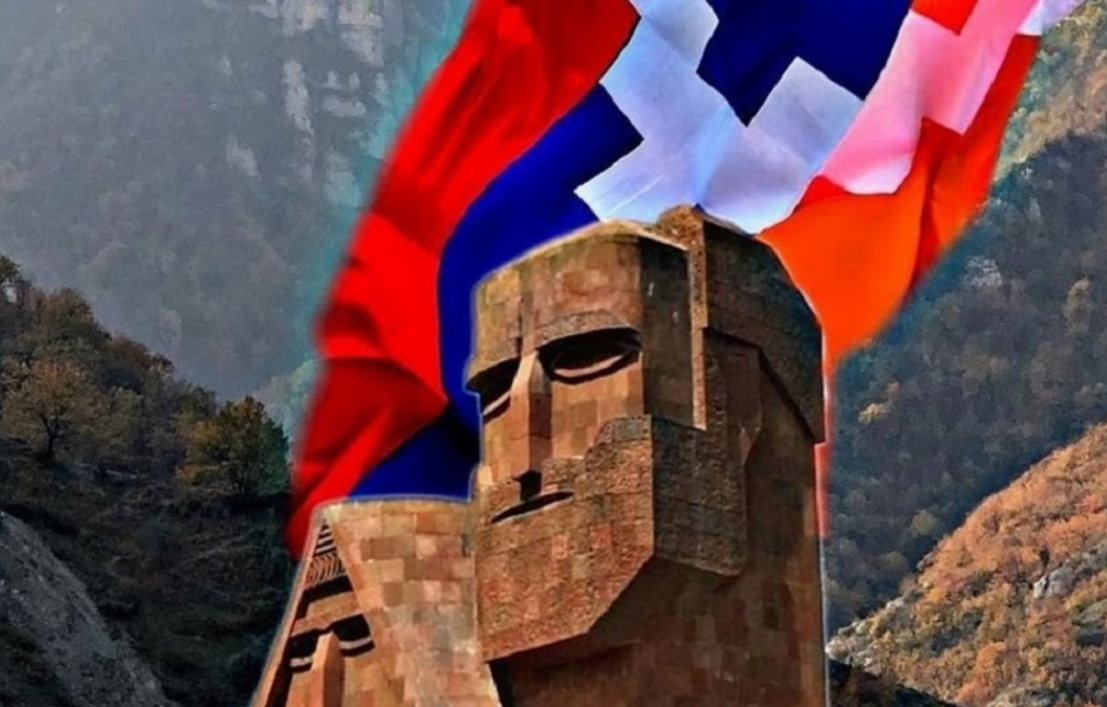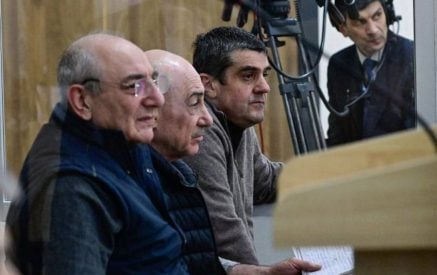If you agree with the Azerbaijanis that the Republic of Artsakh was a “fake” state, then this reflects an attitude toward Armenian statehood as a whole.
About 10 years ago, during an international event, the NKR flag was raised next to the Armenian flag. Azerbaijan, of course, expressed its passionate protest, calling that flag a “piece of cloth.” The same hysteria arose among Azerbaijanis every time when Arkady Ghukasyan or Bako Sahakyan met with politicians or statesmen from other countries.
I recalled the phrase “piece of cloth” recently when, after 2020, the flag of the Republic of Artsakh now has the same effect on many Armenians as a red cloth does on bulls. That flag is perceived by some citizens of the Republic of Armenia as a symbol of “the past,” “Kocharians,” and the “Karabakh clan,” representing “robbery and corruption.”
These same circles do not restrain their malice when discussing the fact that the former leaders of Artsakh are now in enemy hands, in captivity.
Read also
Let’s set aside the moral implications of this behavior and, on the other hand, the grounds that have been created for such an attitude over the past 30 years. Let’s simply acknowledge that the targeted propaganda of the government (which was in the opposition until 2018) has achieved its goal. But the attitude described above, which is so desirable for the government, impacts not only the “Karabakh people” and not only the NKR but Armenian statehood in general.
The point is that we cannot respect Armenian statehood “selectively.” If we do not respect the Republic of Artsakh, we do not truly respect the Republic of Armenia either. The ideas of the current government and the Baku regime that Artsakh’s statehood was “fake” and that the leaders of that republic are “criminal separatists” are identical. Let’s not debate “internationally recognized” borders—how many times have these borders changed in the 20th and 21st centuries?
In this case, something else is important. The goal of Azerbaijan and Turkey is to destroy Armenian statehood. Maybe there are naive people who think that these countries wish to live peacefully next to us as neighbors, but unfortunately, no facts support this optimistic assumption. For them, not only does the Republic of Artsakh not exist, but the Republic of Armenia, in fact, does not exist either. Armenian officials do not refer to Artsakh by name and generally avoid talking about it, considering it a “closed page,” so to speak. Azerbaijani officials, starting with Aliyev, do not hesitate to call the Republic of Armenia “Western Azerbaijan” and demand that we abandon the Declaration of Independence, which indirectly reveals their attitude toward our statehood.
The main reason, I believe, is the position of our government and the anti-state approaches it promotes. If one can speak disdainfully about the (even if unrecognized) statehood of Artsakh, why can’t one have the same attitude toward the Republic of Armenia? If people don’t feel pain over losing Artsakh, why should they worry about losing the rest of Armenia?
…Belarusian President Lukashenko made an unacceptable, extremely insulting statement, implying that Armenians (notice, Armenians, not Armenia) are of no use to anyone except themselves, meaning Russia and Belarus. It is a very reprehensible statement. But let’s reflect a little more on how we have conducted ourselves since 2020. It seems that we don’t even need ourselves.
Aram Abrahamyan























































